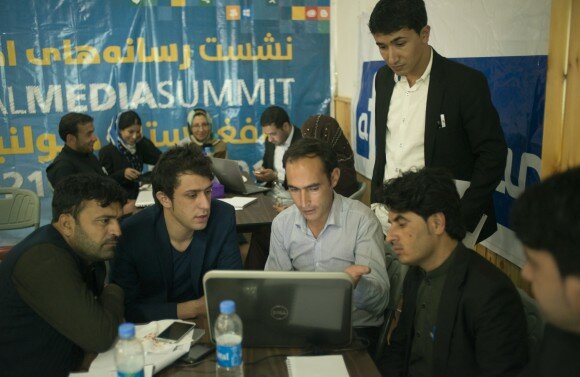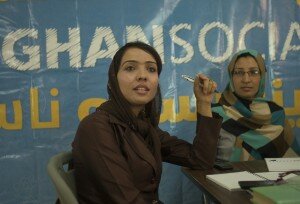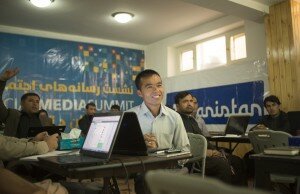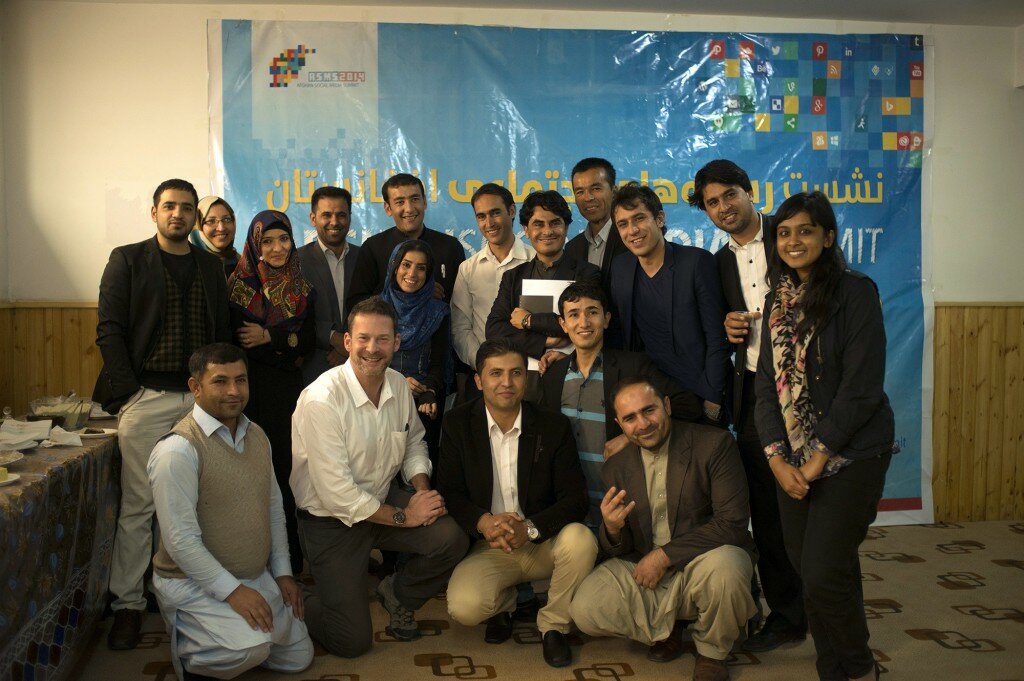
There are lots of reasons why mobile devices are replacing computers as the primary platform for social media and citizen journalism. Mobiles are portable. They can shoot photo and video. They are cheaper than computers.
In Afghanistan there are some additional advantages to mobiles. A computer will get the attention of Taliban at a checkpoint. It suggests work with government or with Western NGOs. But phones have become so ubiquitous they go unnoticed.
This anecdote underscores the reality here: following the national election earlier this year the potential for citizen journalists using mobile tools to continue to make an impact is great, but the challenges remain substantial.

John Smock 2014
As part of the second Afghan Social Media Summit in October, Small World News provided a four-day training of trainers (ToT) workshop in Kabul. The 15 participants came from 10 provinces. Some were teachers, some students and some journalists or community advocates. All were enthusiastic about the opportunity to take the material presented back to their home province for use in workshops of their own.
The workshops were held at the office training space of Impassion Afghanistan, the organization that organized the ASMS summit. We covered training techniques on material as basic as how a web browser work to topics as advanced digital security and how to build audience around community issues using hashtags. Participants quickly built relationships with one another – and a Facebook group – that will allow them to continue to exchange ideas and resources after they return home.

John Smock 2014
Illiteracy rate in many provinces remain high in Afghanistan and dependable Internet and smart phone use low. Yet Facebook and WhatsApp are widely used, mostly among younger Afghans. During the election Small World News helped develop the curriculum for several election-related projects, including an SMS/IVR reporting project and another to encourage community peace reporting and solutions journalism. Several of the participants in the ToT workshops were part of these earlier projects.
In January of 2015 the United Nations will formally end the ISAF mission. President Ashraf Ghani and Chief Executive Officer Abdullah Abdullah have committed to a variety of good governance programs for Afghanistan. The nation could be heading toward a long-awaited era of peace and development.

John Smock 2014
There is no doubt the citizen journalists working with mobile tools in provinces across the country will play a growing role in monitoring how both local and national government deliver on the opportunity.
Blog, Featured, Frontpage, Small World News Blog